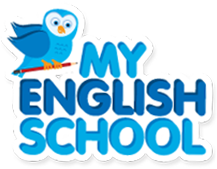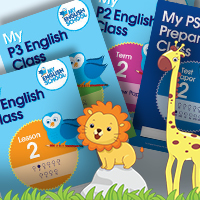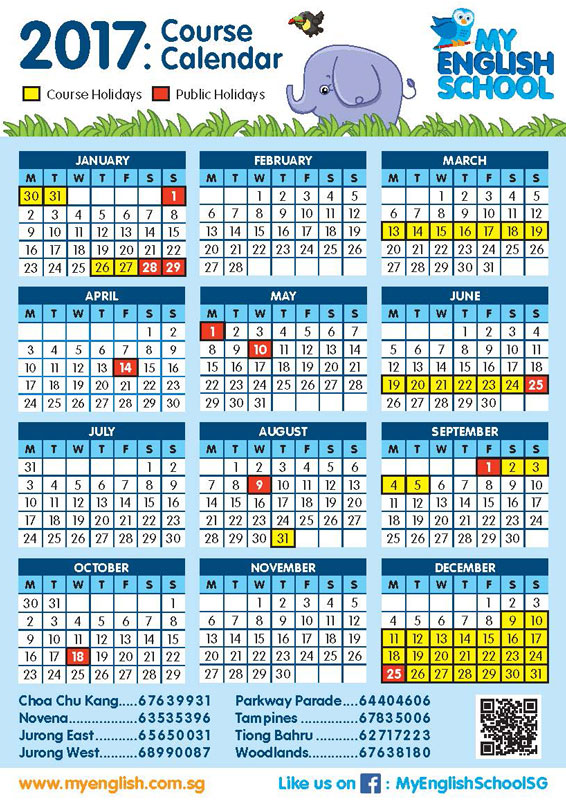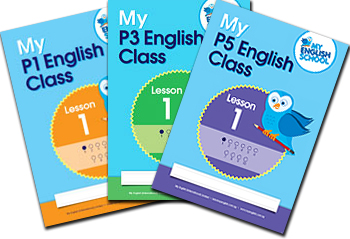
1. Parents look for a programme that equips their children with relevant skills that help them in English as a school subject but also in other subjects like maths and science because without a good command of English these subjects are hard to master.
2. Parents also feel it is critical to build a good long-term English foundation for their children so that they will be able not only to master their school work but also to succeed in university and their careers.
3. Lastly parents understand that children only learn when they look forward to enjoyable English enrichment classes where they can enjoy the material, the atmosphere and the interaction with teachers they can learn from and respect.
What do we at My English School offer for primary students?
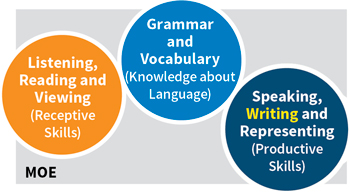
1. English as a School Subject
The MOE English Language Syllabus 2010 clearly describes the English skills that are expected at each level of primary school. Rather than merely following the MOE syllabus like other programmes claim to do, we prioritise the skills that are hardest for students to learn, bearing in mind the important principles of MOE’s STELLAR English programme and the recent changes to the PSLE exam format. Our teachers focus on teaching the skills that parents struggle most to impart: the productive skills. The productive skills are ‘writing & representing’ and ‘speaking & representing’.
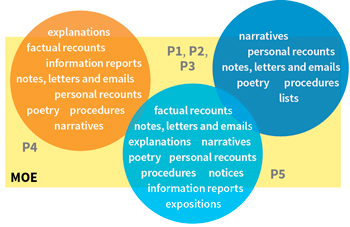
To cover writing skills, lessons lead students to explore and create the required text types for each primary level through a variety of activities. When encountering a text, students may be prompted to read it silently or aloud and then discuss its structure and content. Some lessons elicit written answers to comprehension or observation questions. After being exposed to a text of a particular type, students are guided in generating and selecting ideas for writing a similar text. Lesson materials help them arrange their ideas spatially and sequentially in preparation for drafting. Later lessons provide opportunities for editing and for publishing and sharing finished work.

(based on required MOE text types)
To cover speaking skills, teachers explain and model grammatical speech in the appropriate register during class discussions. Students learn pronunciation, fluency and expression for reading aloud and are reminded of the correct way to face and address the class.
Receptive skills are also covered in our programme. Teachers explicitly instruct students in the correct way to listen attentively to both adults and peers and give targeted feedback to students to reinforce the appropriate positive attitude. Teachers guide students at the appropriate reading skill level, whether students are still explicitly blending letter sounds or instantly recognising polysyllabic words. Grammar and vocabulary exercises are integrated into each lesson alongside the core writing and speaking activities.
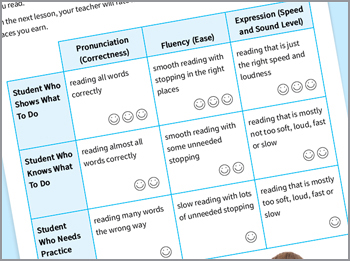
2. English Foundation
Because English is such a critical life skill, parents need a programme in which students can make progress and also demonstrate progress, whatever their current ability level.
As the classes are small with typically only 8 students per class, teachers can use targeted hints and challenges to address each student’s individual learning needs so that weaker students get the support they need and stronger students have the chance to enhance existing capabilities.
My Primary English Programme includes regular oral and written assessments so that teachers, parents and students can monitor students’ progress and identify areas of success and areas for improvement. Preparing for and taking the test gives students the chance to consolidate, demonstrate and take pride in their learning. The programme, taught almost exclusively by native English speakers from abroad, goes beyond what is taught in schools to give students a broader perspective on ideas and culture across the English-speaking world and help them develop holistically.
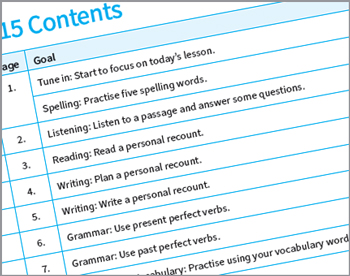
3. Enjoyable English Enrichment
Teachers motivate students to express curiosity and constructively voice their own opinions about unfamiliar words and concepts. Students reflect informally on their own skill level and performance in the classroom environment and are asked to actively assess their own knowledge. Lastly they are instructed in methods for filling in knowledge gaps so that they become strong, independent learners.
Tune-in activities give students a chance to apply their own knowledge or brainstorm something creative, spontaneous and personal while starting to focus on the subject matter of the lesson.
The remainder of the lesson engages students in active learning by providing the opportunity for them to share reading and writing experiences and build a full range of strong literacy skills. Each lesson has a table of contents inside, and each lesson page is labelled according to the broad skill type it targets, so students can enjoy a variety of activities while also maintaining a sense of control by understanding what the goals for each lesson are.
» Read about the writers of the curriculum at My English School.
